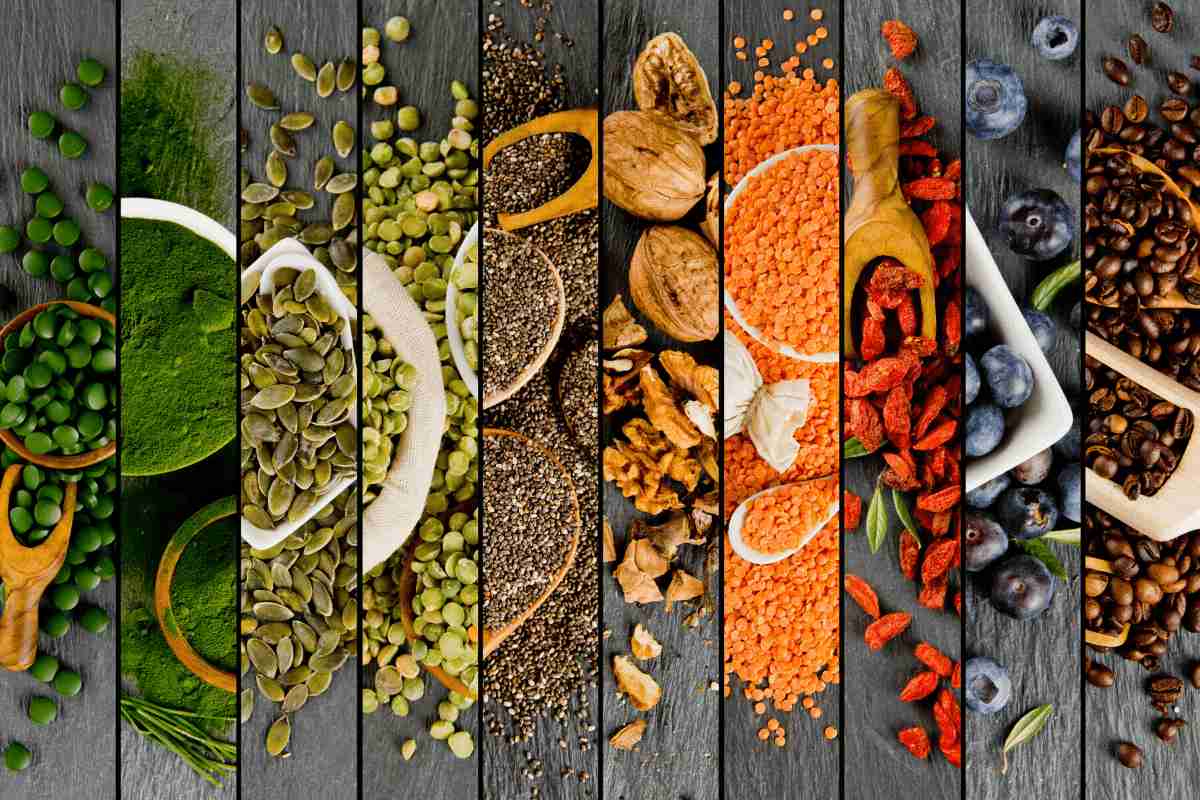How Do You Feel? Your Mental Health Is Connected to What You Are Eating
How Do You Feel? Your Mental Health Is Connected to What You Are Eating

By Yvonne Liu

By Yvonne Liu
July 19, 2024

Having turbulence and a higher level of stress, anxiety, and depression are occurring more commonly these days for most of us. Struggling with work, going through break-ups, or even being nervous about socializing with strangers–trust me, you are not alone here. But what are some things we could do to take more care of ourselves?
Even though they seemingly stem from individual incidents, our feelings and emotions are inseparable from our diet. Our appetite is a long-timer close partner to our moods, and our stomach is an organ of emotion. When receiving a signal of an emotion, whether it is joy, grief, or anger, our appetite changes to a different kind of craving for food. This is why you see people swiping our ice creams in their fridge when they are feeling down.
Among all these craves, sugar and heavily flavored processed food are the most common ones when people are handling a difficult emotion. While they can help you feel better at the moment, they have more negative impacts than you can think of. Other than the known fact that sugar-laden, high-fat, and processed food may affect our physical health, bringing diabetes, heart disease, or high blood pressure to the table, they could also circle back to the starting point of our mental health problems.
A study conducted by BMC Psychiatry has shown that dietary sugar intake has a deep connection to depression symptoms among adults in the United States. By increasing the sugar intake of people, sugar-sweetened food and beverages will influence the production and function of neurotransmitters, which can have an impact on mood and mental health, leading to a higher chance of depression.
On the other hand, processed food with a higher amount of added sugar and other flavors will be easier for people to get addicted to, since it stimulates the formation of dopamine that would immediately make us feel more rewarded. However, relying too much on sugar to refresh and unwind will train our brains to be used to longing for them, leading to inflammation throughout the body and brain and eventually converting to a deeper level of depression, anxiety, and other emotional damage.
Having turbulence and a higher level of stress, anxiety, and depression are occurring more commonly these days for most of us. Struggling with work, going through break-ups, or even being nervous about socializing with strangers–trust me, you are not alone here. But what are some things we could do to take more care of ourselves?
Even though they seemingly stem from individual incidents, our feelings and emotions are inseparable from our diet. Our appetite is a long-timer close partner to our moods, and our stomach is an organ of emotion. When receiving a signal of an emotion, whether it is joy, grief, or anger, our appetite changes to a different kind of craving for food. This is why you see people swiping our ice creams in their fridge when they are feeling down.
Among all these craves, sugar and heavily flavored processed food are the most common ones when people are handling a difficult emotion. While they can help you feel better at the moment, they have more negative impacts than you can think of. Other than the known fact that sugar-laden, high-fat, and processed food may affect our physical health, bringing diabetes, heart disease, or high blood pressure to the table, they could also circle back to the starting point of our mental health problems.
A study conducted by BMC Psychiatry has shown that dietary sugar intake has a deep connection to depression symptoms among adults in the United States. By increasing the sugar intake of people, sugar-sweetened food and beverages will influence the production and function of neurotransmitters, which can have an impact on mood and mental health, leading to a higher chance of depression.
On the other hand, processed food with a higher amount of added sugar and other flavors will be easier for people to get addicted to, since it stimulates the formation of dopamine that would immediately make us feel more rewarded. However, relying too much on sugar to refresh and unwind will train our brains to be used to longing for them, leading to inflammation throughout the body and brain and eventually converting to a deeper level of depression, anxiety, and other emotional damage.


Learned about the risk of indulging in sugar and processed food, what are some ways we can work on to take care of mental health? Emerging studies of nutrient psychiatry suggest we include food that is good for our gut health in our daily diet. Communicating with our brain through the gut-brain axis, microbes in the gut produce neurochemicals like serotonin and dopamine, implicating in enhancing our mental health.
A more diverse diet that includes more protein and fiber can also contribute to a lower risk of depression and a higher level of happiness and satisfaction. A New York Times article “How Food May Improve Your Mood” talked about a survey on a comparison of 2 different kinds of diets–one involving natural protein, fiber, and fruit and vegetables, and the other one with processed and artificially flavored meat and snacks–and their impact on people’s mental reaction. It shows a more organic and diverse diet is an additional benefit for people to balance their mood, and even relieve the burden of accessing food by eating more nutritious.
Superfoods, a recently more recognized beneficial diet component, can also aid us in the way to improve our mental stability. Whole grains and nuts will lower the risk of depression by bringing more positivity to our mood, as well as vegetables and fruits. Dark chocolates, often containing 70% or more cocoa, will boost the level of endorphin, which is a more long-lasting chemical that stimulates more healthy emotions.
Learned about the risk of indulging in sugar and processed food, what are some ways we can work on to take care of mental health? Emerging studies of nutrient psychiatry suggest we include food that is good for our gut health in our daily diet. Communicating with our brain through the gut-brain axis, microbes in the gut produce neurochemicals like serotonin and dopamine, implicating in enhancing our mental health.
A more diverse diet that includes more protein and fiber can also contribute to a lower risk of depression and a higher level of happiness and satisfaction. A New York Times article “How Food May Improve Your Mood” talked about a survey on a comparison of 2 different kinds of diets–one involving natural protein, fiber, and fruit and vegetables, and the other one with processed and artificially flavored meat and snacks–and their impact on people’s mental reaction. It shows a more organic and diverse diet is an additional benefit for people to balance their mood, and even relieve the burden of accessing food by eating more nutritious.
Superfoods, a recently more recognized beneficial diet component, can also aid us in the way to improve our mental stability. Whole grains and nuts will lower the risk of depression by bringing more positivity to our mood, as well as vegetables and fruits. Dark chocolates, often containing 70% or more cocoa, will boost the level of endorphin, which is a more long-lasting chemical that stimulates more healthy emotions.
The Takeaway
The Takeaway
The connection between what we eat and how we feel is profound. By being mindful of our diet and making healthier food choices, we can support both our physical and mental well-being. Instead of reaching for sugary and processed foods during times of emotional stress, consider incorporating a variety of nutrient-rich foods that promote gut health and mental stability.
One thing we should always keep in mind: nourishing our bodies with wholesome ingredients is a powerful step towards achieving a balanced mood and a healthier, happier life. Let’s take control of our mental health by starting with what's on our plate, embracing a diet that feeds not only our bodies but also our minds.
The connection between what we eat and how we feel is profound. By being mindful of our diet and making healthier food choices, we can support both our physical and mental well-being. Instead of reaching for sugary and processed foods during times of emotional stress, consider incorporating a variety of nutrient-rich foods that promote gut health and mental stability.
One thing we should always keep in mind: nourishing our bodies with wholesome ingredients is a powerful step towards achieving a balanced mood and a healthier, happier life. Let’s take control of our mental health by starting with what's on our plate, embracing a diet that feeds not only our bodies but also our minds.

